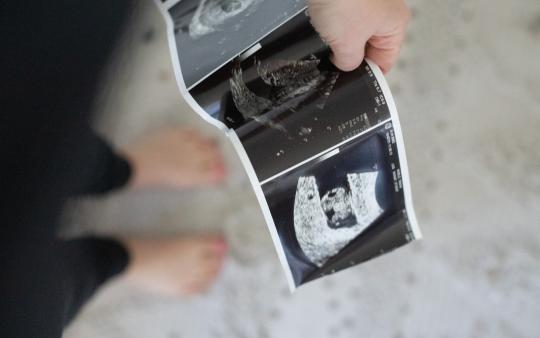Pregnancy loss is something that you hope won’t ever happen to you. It is an experience that is different for everyone, but is more common than we may realize. Approximately 1 in 4 pregnancies end in miscarriage, though only 10% end in miscarriage after you have heard the heartbeat. After a miscarriage, it takes time to heal, both emotionally and from the physical changes that have occurred.
Talking about miscarriages in between children is not common. Many of us know someone who has had a miscarriage, which is most commonly shared when trying for a first baby. Talking about miscarriages when trying for a second child is almost never shared publicly. Parents are often asked when the next child is coming. This can be a difficult for a parent who has gone through the loss of a miscarriage after already having a child. It has been ingrained in humans to think this way because society has painted a picture of the perfect family having two or more children. It is so important to be sensitive when speaking to parents about family planning.
Emotions after miscarriage
Every pregnancy loss is different. Whether you’ve had a D&C (dilation and curettage - a surgical procedure used to remove any remaining tissue from the uterus after a miscarriage) or a natural miscarriage, it is not easy. Loss is loss. After going through a miscarriage there are many emotions. Hormone levels are all over the place and everyone grieves differently. No matter when you miscarried in your pregnancy, nothing can prepare you for the feelings and what your body experiences. This leads to many questions to which we may never know the answer.
Then there is the realization that there may be family members and friends who knew about the pregnancy. Explaining the miscarriage is one of the hardest parts because it makes it more real. There are times you want to speak about it and there are times you want to hide. Your child (or children) may ask if Mommy still has a baby in her tummy? Your heart will sink. You may randomly cry. If you see someone pregnant you may feel anger and thoughts of “What if I will never have another baby”. These are all normal thoughts. Allow yourself to take the time you need to feel all the emotions - you may be okay today, but need more support in the future. You never know when feelings will emerge but remember, you never have to feel or be alone.
Supporting your physical recovery
Healing after a miscarriage is very important. Everyone is different and everyone’s body will recover on a different timeline. Give yourself patience and time. Listen to your professionals but most importantly, listen to your body. This is a time where you really feel your body. Your organs are moving back into place, you may be bleeding, and your hormone levels are through the roof. For post-miscarriage recovery, the body needs nourishment as it heals. Focus on good nutrition such as iron, vitamins like B12 and D, and foods that are rich in protein. Other ways to nurture your body could be through acupuncture, herbal teas, exercise (when your body is ready) and self-care activities.
Finding community support
Someone who has never gone through a miscarriage will never understand the complete feeling and that’s to be expected - know that they still care about you. There are others who have gone through one or several miscarriages and you may want to reach out to them. It is helpful to have others to talk to who have had their own miscarriage journey. Open up when you’re ready. The most important thing is to know you are not alone.
If you are in a place where you would like to read more in depth, you can read Tasha’s personal miscarriage story on her blog, excerpted below:
My body did it, naturally. I still don’t know why my body held on for 7 weeks when I wasn’t pregnant. Some friends tell me my body is such a good host and fought hard that I should see the beauty in that. At the time, that was hard to see. I feel so lucky my body let go after I got answers from the doctor. It’s like my body knew, ok now you know, I am going to let go now. It would be a different feeling & experience if I didn’t have that ultrasound. That doesn’t make grieving any easier though. Loss is loss and now my body is in healing mode.
October is Pregnancy and Infant Loss Awareness month. It is time to come together and normalize the conversation - you are not alone.
You may also enjoy: Infant and Pregnancy Loss Doulas, Trying to Conceive: Fertility Tips You Need to Know, and Coping with the Stress and Emotions of TTC.



